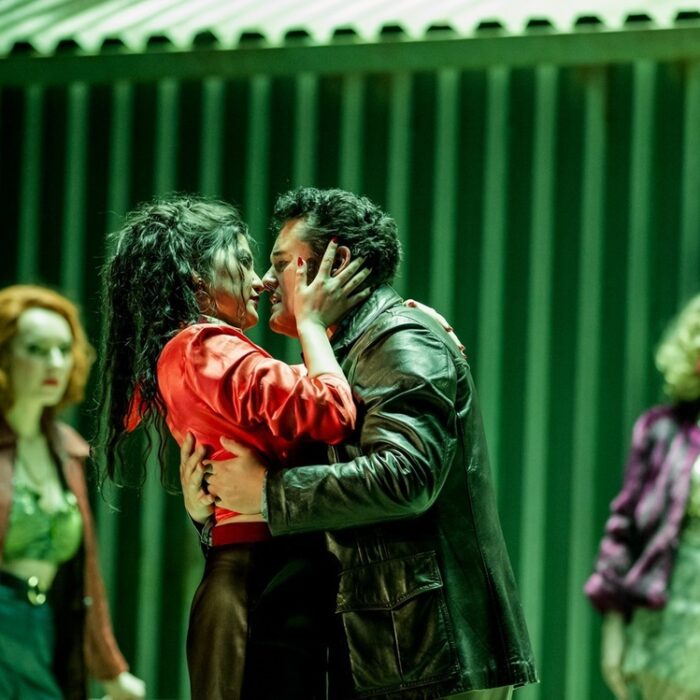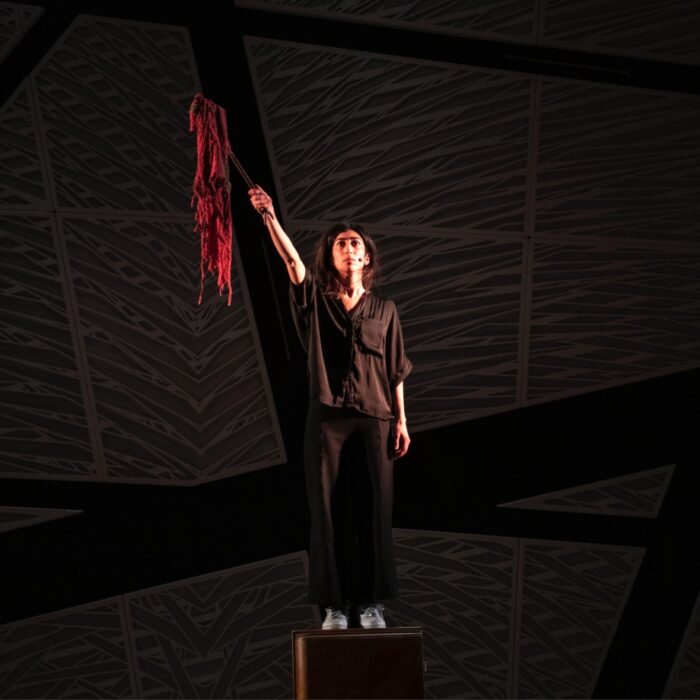
Wexford Festival Opera 2018 Review: Sharon Carty’s Recital
Promising Mezzo Showcases Talent In Diverse Art Songs
By Alan NeilsonSt. Iberius Church on Wexford’s North Main Street is a delightful mid-18th-century building, with a Georgian interior, delightfully decorated in wedgewood blue and white. A balcony runs around three sides, providing seating for the congregation on two levels.
With its intimate atmosphere and excellent acoustics, it makes an ideal venue for Wexford Festival Opera’s lunchtime recitals, given each day by members of the casts from the operas. The Irish mezzo-soprano Sharon Carty and pianist Leslie Dala were one of the selected pairings for this year’s festival.
Close to Home
Carty kicked off her program with a couple of songs by the Irish composer, Charles Villiers Stanford. The first, entitled “A soft day,” is an Irish way of describing the all too frequent days in which the weather turns into non-stop light, drizzly rain. It was an excellent choice with which to begin the recital, and immediately captured the audience’s attention with its beautiful undulating melody, as well as proving to be a good vehicle for showing off the beauty of her voice, and interpretative ability.
Each verse ends with the line “drips, drips, drips.” Carty not only phrased each word to capture the sound of the heavy droplets falling from the eaves and the leaves, but punctuated the lines with just the right length of silences to accentuate the effect, in a fine example of word painting.
The second song, “The Bold, Unbiddable Child,” gave her the opportunity to demonstrate her ability at characterization. The song is about a mother trying to get her wayward child to come indoors, who seems to prefer to stay outside and create a little mischief. It was wonderfully articulated, her bright mezzo nicely reflecting the mother’s increasing frustrations as she accented the line “Come in out o’ that” with rising annoyance.
On To Some Schubert
Next year the mezzo-soprano will be recording a disc of Schubert songs, some of which will be centered on the four seasons. As a taster, she sang one song from each season, starting with spring, in a song called “Viola.” It is relatively long, lasting about 12 minutes, and tells the story of a single flower which appears too early and dies of loneliness and of winter’s final blasts. It is a song that moves through a number of emotions, but in the end is desperately sad. In a poignant and heartfelt piece of singing, her phrasing full of expressive intensity, she brought the song truly alive and had the audience transfixed by its charm.
By contrast, “Die Sommernacht,” was a short, reflective song, consisting mainly of recitatives. The last couple of lines, however, turn into a beautiful melody, which was fully exploited by the bright lyrical quality of her voice.
For autumn, Carty chose to sing “Litanei aus das Fest Allerseelen,” set on All Souls’ Day, in which she displayed wonderful vocal control, and artistic sensitivity as she embellished the lines with an array of subtle ornamentations and colorful shadings. Carty also made full use of her beautiful legato to deliver a memorable rendition which captured the hope that lies after death for all those who have suffered.
For the winter season, the mezzo sang “Der Winterabend.” It is a reflective song about a woman sitting in a room watching the snow fall outside the window and thinking of the past. The song appeared to be perfectly suited to her voice and was sung with great sense of freedom, perfectly communicating its melancholic quality.
More Songs & A Strange Inclusion
Mozart’s concert aria,“Ch’io mi scordi,” was next up. Its inclusion felt somewhat artificial as if it had been included because she felt a need to include an aria at some point. All the songs, both before and after, added to the overall balance and variety of the recital, moreover, the reasoning behind their inclusion was clear. This appeared to be almost a random choice, and did not sit well within the programme’s overall structure. Nevertheless, it was given an emotionally powerful interpretation, in which she showed off her solidly grounded coloratura. Dala was also given the opportunity to display his ability with a well-delivered piano obbligato.
After this musical diversion, we returned to the songs, this time two cabaret songs by William Bolcom.
The first was a humorous and lively number called “Amor,” about a girl who trades on the fact that all men find her irresistible, using the word “amor” as an amusing refrain. Carty gave a totally convincing rendition, in which she not only fully embraced the style of a cabaret singer, adding different colors and inflections to the voice, but also hammed up the part to bring out its full humor.
The second was a song, called “George,” about a man who preferred to be called Georgia, and who was finally stabbed to death. Although on the surface a sad song, it is however a song bathed in irony, with a carefree spirit, one which was perfectly captured by the mezzo’s vibrant, yet nuanced singing.
The recital was well-appreciated by the audience, and so she generously provided an encore. The choice of song was a little surprising, although most fitting; it was called “Bid Adieu,” and the lyricist and writer of its melody was the famous Irish novelist James Joyce. It is a gentle song, in which a young woman says goodbye to her girlish days; Carty spun out its long arching lines with a melancholic acceptance, her beautiful sounding and stable legato underpinning its sentiment.
The recital was hugely enjoyable. The choice of repertoire, “Ch’io mi scordi” excepted, was intelligently structured, containing many rarely heard songs which deserve further exposure. Moreover, it was an excellent showcase for Carty herself, who not only gave wonderful readings of all the pieces, but also showed that she has a natural ability to engage with the audience, seeming to delight in providing a detailed introduction to each song. Dala provided the necessary sympathetic and supportive accompaniment.


